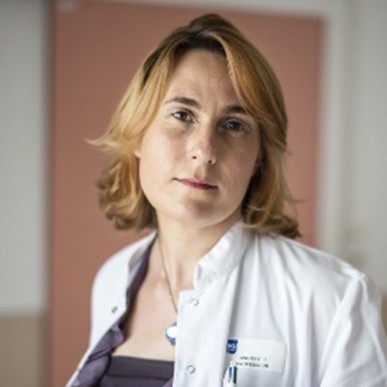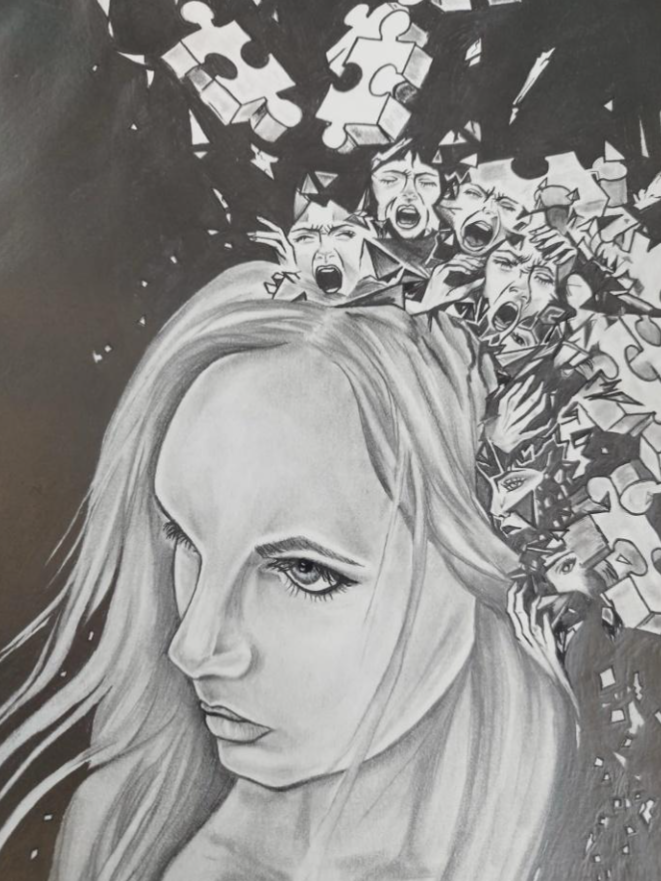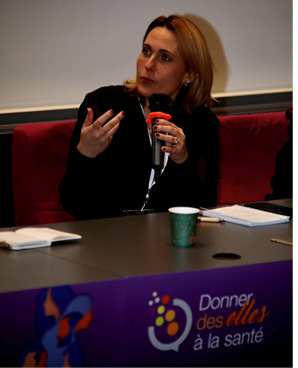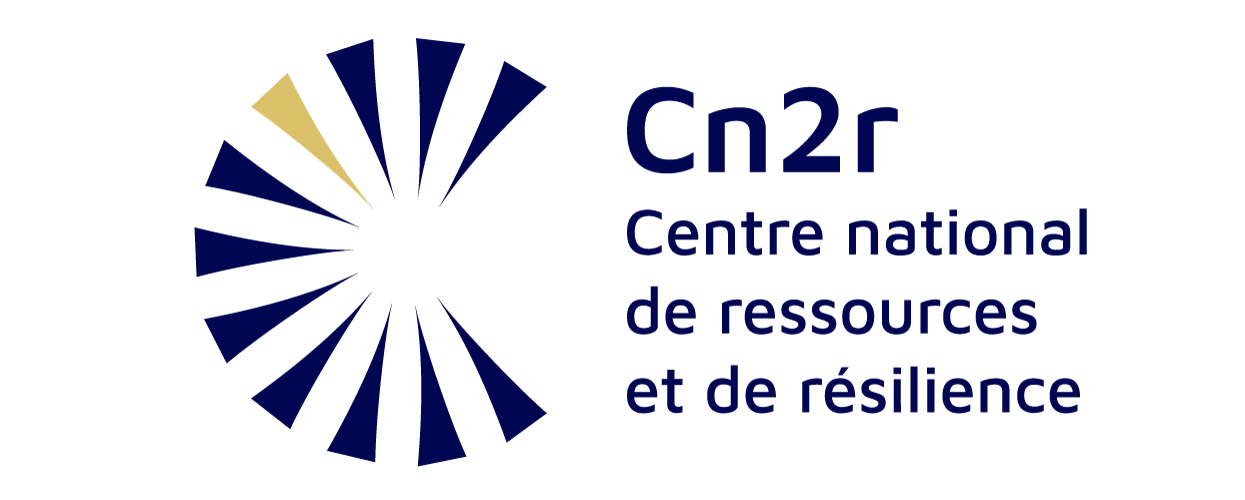Psychiatrist and clinical researcher Prof. Coraline Hingray devotes her work to identifying dissociative mechanisms and their influence on patients' experiences and perceptions. Her approach, informed by clinical practice, aims to better recognize and understand these phenomena, which are still under-identified. In 2024, she founded the Maison de la Résilience, a center dedicated to sexual violence and dissociative disorders.

At the start of her residency, Coraline Hingray hesitated between neurology and psychiatry. " What fascinates me is the human brain," she explains. But little by little, psychiatry became the obvious choice, driven by the richness of clinical exchanges and the breadth of research questions it opened up.
Coraline Hingray, photographed by Guillaume Chauvin for Le Monde
One of them, in particular, upsets his certainties. A patient describes her seizures, once described as "Charcot-style hysterical attacks", while recalling the sexual abuse she suffered as a child. Her account is precise, factual, but devoid of affect. " It wasn't so bad, because I wasn't there, I was next to a river, I could feel the sun on my skin and hear the birds," she confides. This incredible ability to detach oneself from horror was a source of great interest to the young psychiatrist.
Drawing of an IDD patient, photo courtesy of Coraline Hingray

"I didn't know what dissociation was yet, but I was fascinated. She was talking about this ability to extract oneself from the unbearable, believing oneself to be somewhere else, to protect oneself, and at the same time it was this very mechanism of dissociation that was now becoming uncontrollable and a source of suffering."
This first confrontation with dissociation marks the beginning of a broader reflection. How can a protective phenomenon also become a source of suffering? This question, raised by the clinical encounter, led her to take an interest in dissociative manifestations in the field of psychotraumatic disorders.
Deconstructing preconceived ideas
Among dissociative disorders, Dissociative Identity Disorder (DID) remains under-diagnosed. According to Coraline Hingray, this is due to a lack of understanding of the disorder and misperceptions about it.
"For fifteen years, I had these patients in front of me without seeing them."
IDD is often confused with other psychiatric pathologies, or interpreted through the prism of more common diagnoses. "If I, who was already aware of dissociation, missed it, how many others still do today?"
On March 6, 2024, during the Cn2r webinar "Dissociative Identity Disorder: A poorly understood post-traumatic reality ?", Coraline Hingray will shed light on this disorder, specifying its diagnostic elements, clarifying its manifestations and proposing suitable treatment options.
A structure dedicated to the treatment of sexual violence

At the end of 2024, Coraline Hingray founded the Maison de la Résilience.
"Sexual violence remains invisible, despite its alarming frequency. There is a victim, child or adult, every three minutes. There was an urgent need to look for other models of care and funding to offer care to a wider public".
Waiting room at the Maison de la Résilience, photo courtesy of Coraline Hingray
Inspired by foreign models such as Psytrec in the Netherlands, the Maison de la Résilience offers intensive, integrative care. The center is also a place of expertise for complex dissociative disorders, which are often difficult to diagnose. Coraline Hingray has designed a hitherto non-existent institution, combining day hospitalization, group therapy and specialized support. "It's a space where we recognize the suffering associated with sexual violence and offer hope for liberation."
Improving the structure of psychotrauma care
Although progress has been made in recent years, French psychiatry is still struggling to structure the management of psychotrauma. Coraline Hingray welcomes certain initiatives, such as the intensive day hospitals in Lille and Caen, but points to a lack of training for clinicians and under-identification of traumatic antecedents. "Too many patients arrive in psychiatry without their traumatic history being taken into account. This prevents appropriate treatment.
But care is not the only issue at stake. The reactions of those around them, of institutions and of the legal system, play a decisive role in the trajectory of victims. Coraline Hingray uses the term "over-trauma" to describe these secondary wounds, which are not caused by the trauma itself, but by misunderstanding, doubt or lack of protection.
"What often exacerbates victims' suffering is not just what they have experienced, but the way their words are received: disbelief, minimization, or sometimes even guilt."
Over-trauma adds another layer of distress, making the task of rebuilding all the more complex. "More than malice, it's often a lack of knowledge that prevents appropriate support. Raising awareness of these realities is, in her view, a necessary step towards improving the management of psychotrauma.
Developing new tools for tomorrow's psychiatry
Among his projects: a diagnostic tool for dissociative disorders based on artificial intelligence. "The idea is to offer a complementary tool, which would make it possible to refine the diagnosis and identification of dissociative disorders."
A broader commitment

She also continues her commitment to the fight for better recognition of sexual violence, notably through her role as vice-president of the association Donner des elles à la santéwhich campaigns for greater equality between men and women in the medical sector, and more structured management of sexual violence in hospitals. "It's not enough to say that these issues are important, we also need to make sure that they are taken into account in practice."
Coraline Hingray works for the association Donner des elles à la santé, photo courtesy of Coraline Hingray.
Advice to the young practitioner she once was
If she had to go back in time, Coraline Hingray would give herself this advice: "Don't be afraid to question your beliefs. What you know at a given moment is never an absolute truth. Always listen to your patients; they are the best teachers and will always be the source of your projects."



